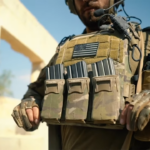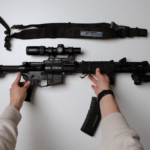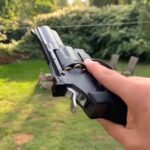The legality of stun guns in New York City has been a topic of much debate and legal scrutiny. For many years, New York had a complete ban on the civilian possession of stun guns and similar devices. This all changed in 2019, following a pivotal legal decision.
A federal court ruled that the total ban on civilian possession of stun guns, including taser devices, was unconstitutional. This ruling marked a significant shift in the legal landscape, profoundly affecting how New Yorkers can use these self-defense tools.
Prior to this ruling, it was a misdemeanor for civilians in New York to possess electronic stun or dart guns, except for law enforcement and certain authorized individuals. Let’s discuss all the relevant information regarding this subject.
Current Legal Status in New York
Following the 2019 federal court ruling, New Yorkers now have the right to buy, keep, and use stun guns for self-defense, as long as they are not used in the commission of other crimes. But the situation is somewhat more complex right now:
- The legalization of electronic stun guns and tasers in New York provides new options for non-lethal self-defense.
- New York law categorizes two types of electric weapons: electronic stun guns and electronic dart guns (tasers).
- These devices are legally defined to temporarily stun, incapacitate, or paralyze a target, offering a non-lethal alternative to firearms.
- Using these devices comes with significant responsibilities; they must be used strictly for self-defense.
- Misuse for criminal purposes, like stalking or assault, may result in serious legal consequences, including Class E felony charges.
- The legalization reflects a balance between the right to self-defense and public safety concerns.
- It also indicates recognition of individuals’ right to access various self-defense tools, in line with the Second Amendment.
Historical Ban and 2019 Court Ruling
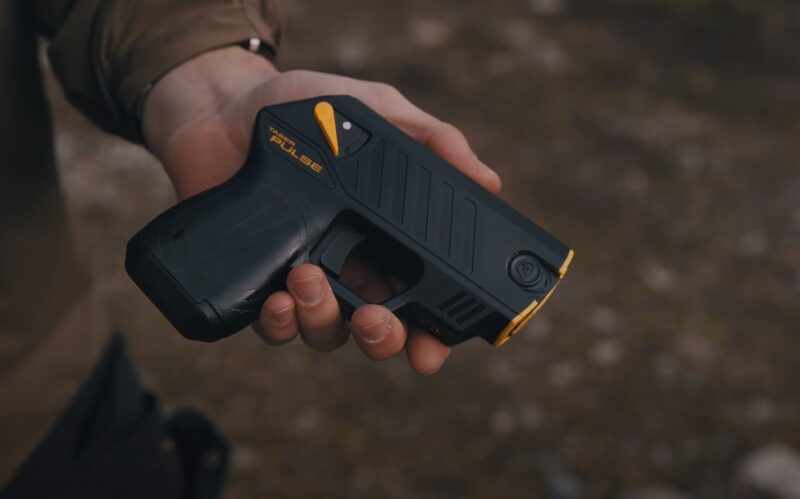
For many years, New York City’s strict laws prohibited the civilian possession of electronic stun guns and taser devices, categorizing them under dangerous weapons. However, in 2019, this long-standing ban was challenged and overturned.
The U.S. District Court ruled that such a blanket ban was unconstitutional, aligning with the growing recognition of the Second Amendment right to keep and bear arms.
This landmark ruling was influenced by the U.S. Supreme Court’s decision in District of Columbia v. Heller (2008), which reinforced the individual’s right to possess firearms for lawful purposes, such as self-defense within the home.
The court’s decision to overturn the ban on stun guns extended this interpretation to include non-lethal weapons like stun guns, acknowledging their role in self-defense. Before this ruling, owning a stun gun in New York was a misdemeanor, punishable by law, with exceptions only for law enforcement and certain authorized personnel.
This strict regulation reflected a cautious approach towards weapons, emphasizing public safety. The 2019 decision recognized the need to balance public safety with individual rights, leading to a significant shift in New York’s stance on personal defense weapons.
Restrictions and Possible Future Regulations
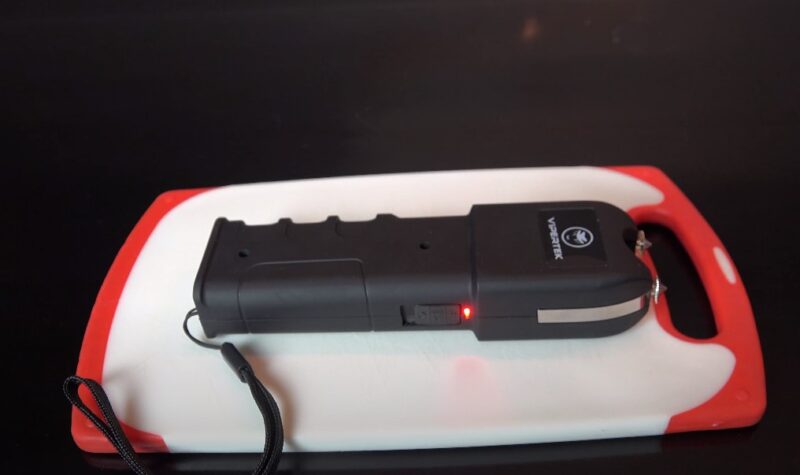
While the 2019 ruling by the U.S. District Court marked a significant change, it did not entirely remove the possibility of regulations on the possession and use of stun guns in New York. The court left open the prospect that certain restrictions on these devices could be constitutionally acceptable.
This indicates a nuanced approach to the issue, where individual rights are weighed against public safety concerns. New York legislators have the authority to amend the laws regarding electronic weapons, including stun guns.
They could introduce regulations such as permit requirements or restrictions on where these weapons can be carried, especially in sensitive locations like schools or public buildings.
New York is considering bill A1831A, which, if passed, would authorize trained school safety agents to carry and use electronic stun guns on school grounds and buses, reflecting the ongoing legislative attention to this matter.
The potential for future regulations underscores the evolving nature of the law in this area. It’s a reminder that while stun guns are legal, their use and possession are subject to change based on legislative actions and public policy considerations.
Users of these devices must stay informed about the current laws and proposed changes to ensure compliance and responsible usage.
Legal Consequences of Misuse
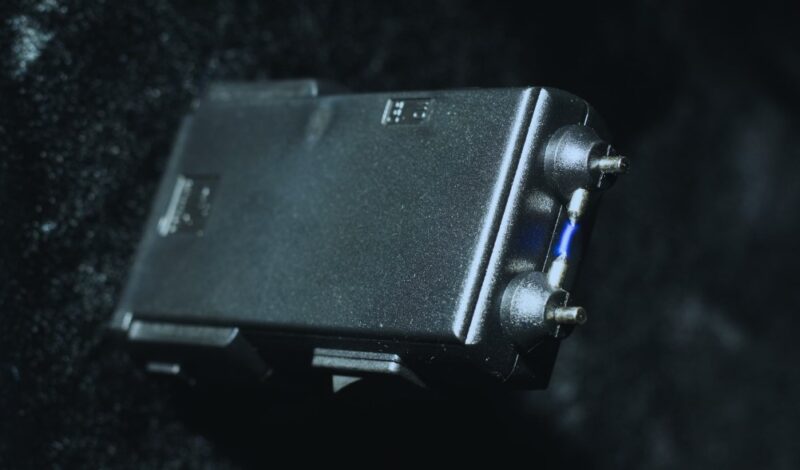
Owning and using a stun gun in New York City comes with significant responsibilities. Misusing these devices, particularly for illegal activities, can result in severe legal repercussions. If a stun gun is used during the commission of a crime, such as criminal stalking, the offender can face serious penalties under New York law, including charges of a Class E felony.
This classification includes not just fines but also potential prison time. The gravity of these penalties reflects the state’s commitment to ensuring that these powerful self-defense tools are not abused. It’s important for New Yorkers to understand that while stun guns and taser devices are legal for self-defense, their use is tightly regulated.
Illegal use of these devices is considered a serious offense, indicating the state’s balancing act between allowing individual self-defense and preventing potential misuse. For anyone facing charges related to weapon violations, including those involving stun guns, consulting with a qualified criminal defense lawyer is crucial.
Legal experts can provide guidance and representation, helping to navigate the complexities of the law. They can offer advice on how to proceed in legal matters, ensuring that the rights of the accused are protected while also respecting the legal boundaries set by New York law.
Ethical and Practical Considerations
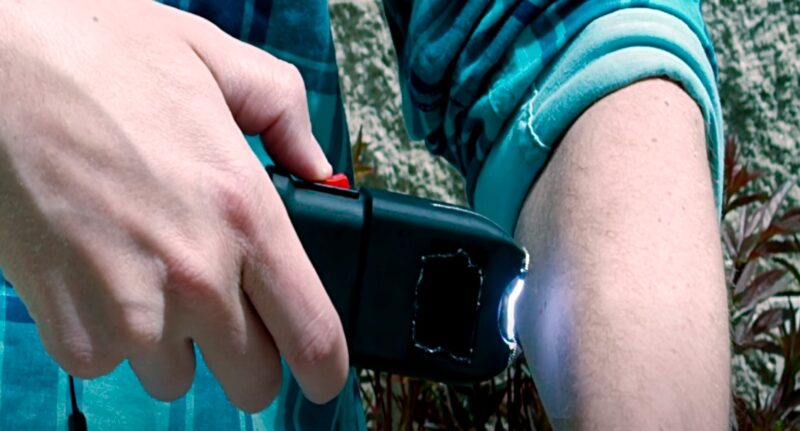
Stun guns and taser devices are valuable tools for self-defense, offering a non-lethal means of protection. Their availability provides individuals with an alternative to more lethal forms of self-defense, aligning with the increasing public demand for safer, less harmful options.
With this capability comes a responsibility to understand and consider the ethical and legal implications of using such devices. Users must be mindful of the circumstances in which deploying a stun gun is appropriate and legal.
They should be trained and knowledgeable about the device’s operation, understanding both its potential and limitations. It’s crucial to comply with local laws and regulations, using these tools responsibly and ethically.
Responsible ownership and usage of stun guns are essential for maintaining public safety and trust. As with any form of self-defense, the use of stun guns should be a measured and considered action, employed only when absolutely necessary and within the legal framework provided by New York law.
FAQs
Are tasers legal in New Jersey?
Yes, tasers and stun guns are legal in New Jersey for civilian use. However, users must be 18 or older and have no criminal convictions.
Can I carry pepper spray in NYC?
Yes, you can carry pepper spray in NYC for self-defense purposes. It must be pocket-sized, and purchasers must be at least 18 years old and have no felony convictions.
Can you carry a knife in NYC?
In NYC, you can carry a knife provided it is not a gravity knife, switchblade, pilum ballistic knife, metal knuckle knife, or a cane sword. The blade must be shorter than 4 inches and cannot be carried in a manner that is perceived as unlawful intent.
What guns can you own in New York without a permit?
In New York, all handguns require a permit. However, you can own a rifle or shotgun without a permit in most parts of the state, except in NYC, where a permit is required for all firearms.
Summary
The legality of stun guns in New York City represents a significant development in the realm of self-defense laws. The 2019 federal court ruling opened the door for New Yorkers to legally own and use these devices, albeit with specific guidelines and restrictions.
This change reflects an evolving perspective on individual rights and public safety. As New York continues to navigate this complex issue, it’s important for residents to remain informed and compliant with the existing laws and any future amendments.


